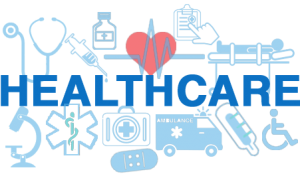(ThyBlackMan.com) The American people justifiably look to the President and their elected representatives in Washington to do everything within their power to protect them – to defend our nation, maintain safety in our workplaces and communities, and assure that every one of us can afford the high quality health care that every human being deserves.
This is why (although too many of my Republican colleagues in Washington seem to have missed the memo) we all must come to terms with an essential truth about Election Day 2018.
The health of our families will be on the ballot this year.
Recent public opinion polling confirms that health care remains a top priority for most voters. The poll found that 54 percent of those surveyed view health care as one of the two issues that will be most important to their decision on Election Day (compared to the economy and taxes at 28-29 percent).
Congressional Republicans who have repeatedly attacked (but failed to kill) the Affordable Care Act’s protections are politically vulnerable as a result. More than two-thirds of the voters polled (68 percent) indicated that President Trump and congressional Republicans should abandon their efforts to repeal the ACA and “start working across party lines on common sense solutions that build upon the current law.”
My Republican colleagues should also take note of this political reality. The fate of the ACA is not the only health care priority at the forefront of people’s minds.
The American people are demanding that we in Washington take action this year to make the prescription drugs upon which we depend more affordable.
Over the past decade, the prices of 90 percent of brand name drugs have doubled; and prescription drug spending reached $348 billion last year – a staggering cost with real-life consequences for the American people.
A 2014 Commonwealth Fund survey found that nearly 20 percent of Americans reported not filling prescriptions because they could not afford them – a harsh and unacceptable reality.
These hardships and dangers are even more appalling when practical solutions have already been proposed. For example, Senator Bernie Sanders (I-VT) and I introduced proposed legislation in March of last year that would allow the importation of safe, lower-cost prescription medication from licensed Canadian pharmacies [S. 469 / H.R. 1245].
Our Affordable and Safe Prescription Drug Importation Act would require that imported medicines have the same active ingredients and strength as their U.S.-approved counterparts. Our bill also mandates safeguards that include FDA certification of foreign sellers.
The President and congressional Republicans have acknowledged that prescription drug prices are excessive, but they have failed to take corrective action. Between now and next November, they owe the American people an explanation for this failure.
Excessively high prescription drug prices continue to be a significant drain on our federal budget, especially within Medicare. Yet, the Congress has the power to mitigate those costs.
Since 2006, government programs have paid for approximately 40 percent of retail prescription drug expenditures – and, largely as a result of skyrocketing drug prices, total spending on Medicare Part D is projected to increase from $103 billion in 2016 to $216 billion in 2025.
Why does Medicare pay far more for prescription drugs than do other federal and state programs?
Under current law, the Secretary of HHS is prohibited from negotiating lower drug prices on behalf of Medicare Part D beneficiaries. As a result, Medicare Part D pays, on average, 73 percent more than does Medicaid for the same brand name drugs and 80 percent more than does our VA.
In dollar terms, the cost of this congressionally created legislative prohibition is staggering. The federal government (and American taxpayers) could save between $15 billion and $16 billion each year if Medicare paid the same prices for prescriptions as do Medicaid or our VA.
It hardly is surprising, therefore that (according to a Kaiser Family Foundation poll) 82 percent of Americans—including 93 percent of Democrats and 68 percent Republicans—want Medicare to directly negotiate lower drug prices.
Congressman Peter Welch (D-VT) and I had met with President Trump on this issue early last year, and we subsequently sent him repeated reminders of the compelling need to take immediate action. Then, in October, Senator Bernie Sanders (I-VT), Congressman Welch and I introduced legislation that would require these cost-saving negotiations [The Medicare Drug Price Negotiation Act, S. 2011 / H.R. 4138]
Nevertheless, the American people have yet to see any action by the White House or Congress, despite the fact that President Trump has publicly supported negotiating lower drug prices (as recently as in his State of the Union Address).
Meanwhile, we continue to pay far more than we should, placing further pressure on the long-term viability of Medicare.
Improving the ACA, making prescription drugs more affordable, and sustaining Medicare are urgent, real-life concerns for every American, challenges that are at the center of our lives. If the President and my Republican colleagues do not change course and address these challenges, the American people will elect Representatives who will take action on Election Day 2018.
Written by Congressman Elijah Cummings
Official website; http://twitter.com/RepCummings

















Leave a Reply